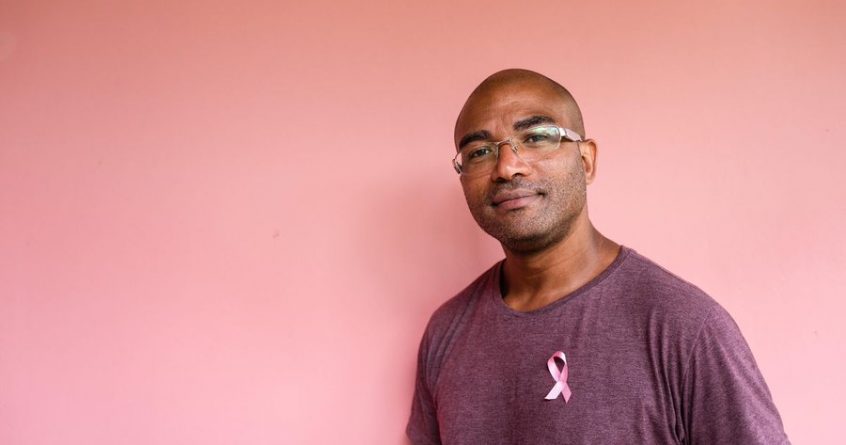Back in 2020, I remember a man with breast cancer being refused access to online support groups – an example of appalling sexism.
Perhaps it stemmed from not knowing men can get breast cancer, which is often thought of as a female condition, and not being aware that men can carry the BRCA1 and BRCA2 gene variants which predispose you to cancer the same way they do in women.
Around one in 260 men inherits a cancer-predisposing BRCA variant that increases their risk of developing prostate, pancreatic and breast cancer, and may affect the health of their family if inherited.
Most of these men are unaware they have a BRCA variant, but could start to worry increasingly how a variant would affect them and their families. This would also apply to some transgender and non-binary people.
Men and women are equally likely to inherit or pass on a BRCA variant, so family histories of cancers need to encompass both sides of the family.
As men with BRCA variants have an increased risk of developing breast cancer, they should, like women, do regular breast exams. Men with BRCA2 variants also have an increased risk of developing aggressive prostate cancer – and so may men with BRCA1.
BRCA1 and BRCA2 are tumour suppressor genes that normally repair DNA and protect us from cancers. But their faulty variants predispose us to cancers, and for BRCA2, possibly melanoma too.
And they’re dominant, meaning each and every time a person with a cancer-predisposing BRCA variant has a child, they have a 50:50 chance of passing their BRCA variant on to their offspring. This is regardless of whether the parent or child is male or female.
Many men and some women with these variants will never develop cancer and risks are lessened by a healthy lifestyle, but carrying a cancer-predisposing BRCA2 variant gives a man an increased risk of prostate cancer. This rises to 60% by age 85 (for comparison, population risk by age 85 is 16%) and the cancer tends to be more aggressive.
Men might be more likely to delay seeking advice for a new breast lump. A study in Hong Kong of men with breast cancer found roughly half waited over a year, and 84% weren’t aware that breast cancer could occur in men. Most breast awareness campaigns are aimed at women.
As I mentioned earlier, people with BRCA genes also have an increased risk of pancreatic cancer, five to six times higher than normal. So a BRCA gene plus a first-degree relative with pancreatic cancer should be checked.
About one in 14 men with pancreatic cancer have a BRCA gene.

